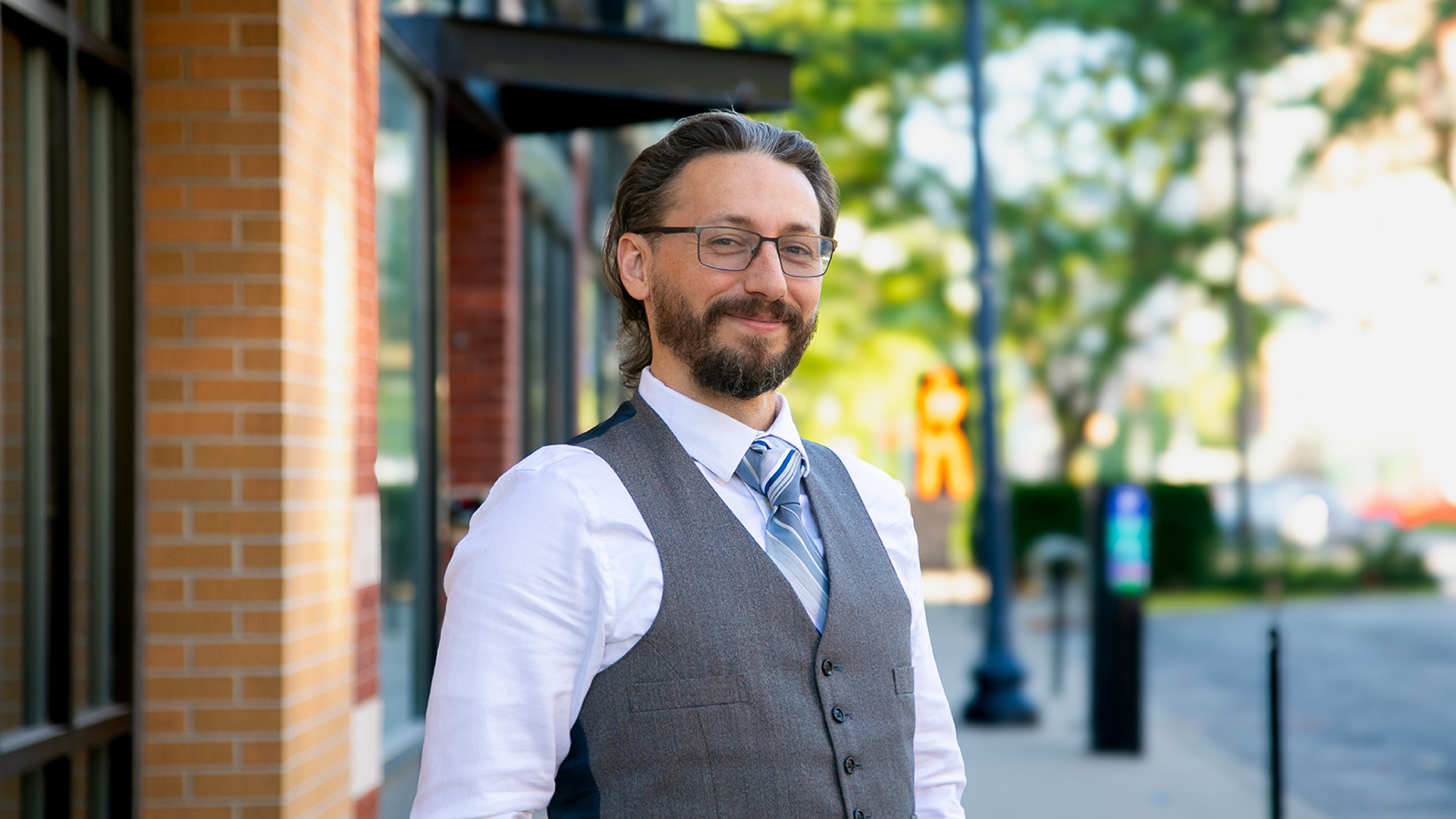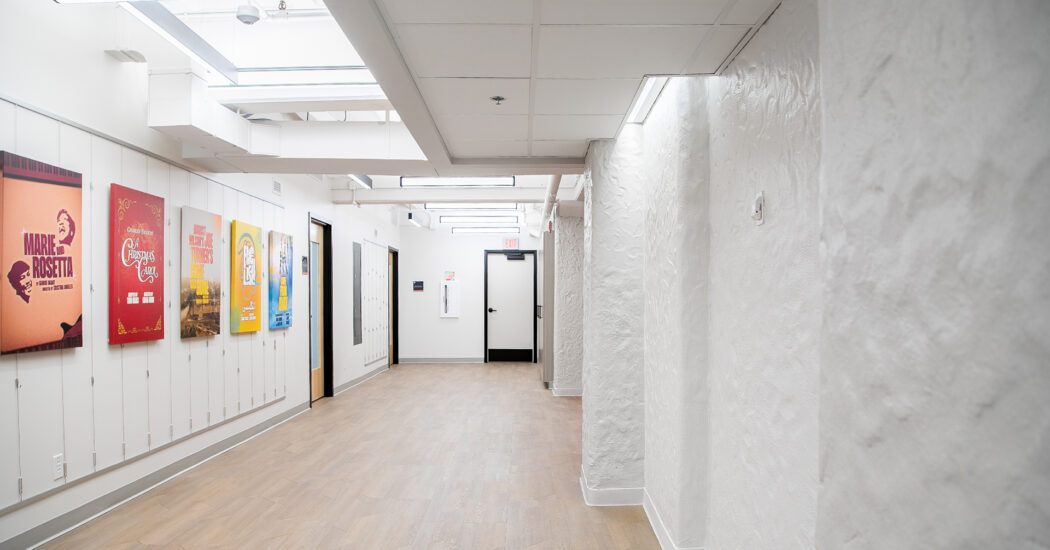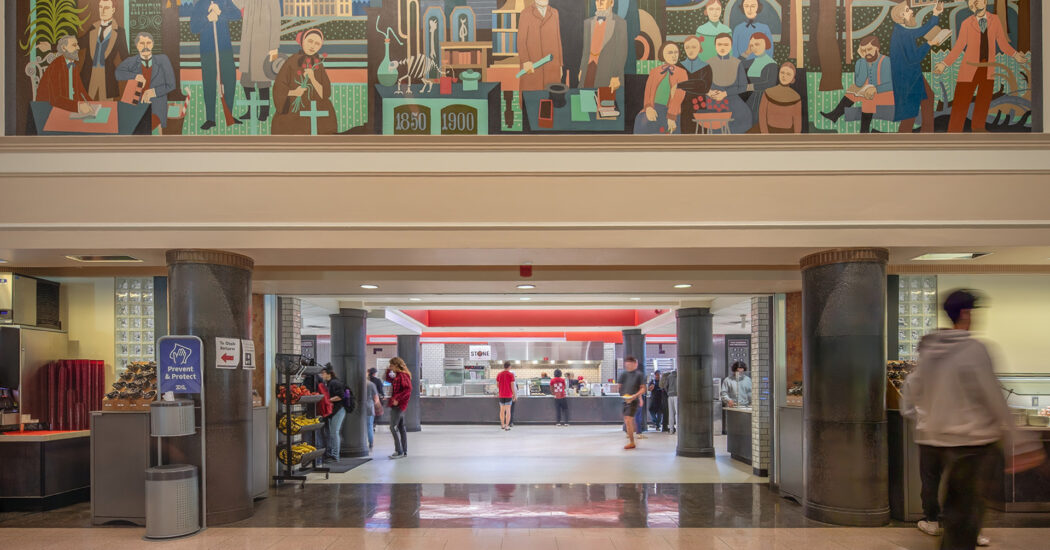Q&A With Michael Barnes, Electrical Engineer
-
Category
Innovation, Leadership -
Posted By
Schmidt Associates -
Posted On
Oct 07, 2024
Michael Barnes, an electrical engineer, will be celebrating his one-year anniversary with Schmidt Associates this December, and we couldn’t be more thrilled to have him on the team. A Kentucky local, Michael will soon be moving back home to join Schmidt’s Louisville office. Beyond his technical expertise, Michael is a passionate salsa dancer, speaker of many languages, and a horseback rider, making him much more than meets the eye. Read his Q&A below to learn more about Michael and gain insights into the role of an electrical engineer!
Introduction to Electrical Engineering: What sparked your interest in electrical engineering, and how did you get started in this field?
My fascination with computers began at age 10 when my father received a home PC for his 40th birthday, a gift from my uncle, who is also an electrical engineer. Growing up, I dreamed of becoming an astronaut and saw engineering as the safest route into the space program. As I got older, my ambitions shifted toward computer engineering and programming, but college quickly showed me that electrical engineering was a better fit for my passion for machines. I started my journey in the AEC field through a friend who had a co-op position at CMTA, which led to my first job at PAE in Portland. Over time, I’ve watched our field increasingly intersect with environmentalism, a cause close to my heart.
As an electrical engineer at Schmidt Associates, what are some of the key projects or tasks that keep you busy day-to-day?
As an electrical engineer at Schmidt Associates, my role involves a wide range of responsibilities. A significant portion of my work is Revit modeling, as it represents the most tangible progress toward deliverables. I also collaborate with architects, owners, and fellow engineers to discuss project requirements, codes, and design options. Some of my key projects include the Westfield Elementary Schools, Penn Harris Madison Schools HVAC upgrades, Lewis Cass Extracurricular Activities Building, and the Damien Center 26 N Arsenal.
How has your role as an electrical engineer evolved, and what new trends or technologies have you had to adapt to?
Since the early 2010s, the field of electrical engineering has evolved significantly. When I first entered the industry, LED lighting was just emerging in the commercial market. At that time, the primary question was whether the cost of upgrading to LEDs could be justified by energy savings. Today, LEDs are the standard for lighting upgrades in most projects. Additionally, I’ve witnessed the transition from drafting tables and AutoCAD to Revit, with its ever-growing capabilities and integration with new tools and data systems.
In your opinion, what are the key skills that make a successful electrical engineer?
In this industry? Adaptability. Adaptability is the most important skill for an electrical engineer in this field. Every building and project is as unique, as are the owners. The ability to remain flexible, curious, and open to new methods and technologies is essential for navigating the challenges of each project.
Looking back on your experiences and lessons learned, what advice would you give to someone starting in electrical engineering?
For those starting out, I recommend tackling the Fundamentals of Engineering (FE) exam as early as possible. Take on diverse aspects of projects, and always refer to the code when necessary.
Career Growth and Lessons Learned
What has been the biggest lesson you’ve learned in your career so far?
One of the most valuable lessons I’ve learned is to maintain gratitude for those you work with. It fosters a mindset of abundance and encourages actions based on desire rather than fear.
How do you balance the technical demands of your job with resilience and adaptability in the face of challenges?
I balance technical demands with resilience & adaptability through communication. Talking out what is code required versus a design guideline versus our own standard and why with people from other disciplines can open up options you wouldn’t consider because that’s not usually part of your scope.
How have your personal values or philosophies guided your career during challenging times?
Honesty, though sometimes difficult, has been a guiding principle. Whether it’s delivering bad news or acknowledging personal mistakes, being honest builds trust. In contrast, withholding information can damage relationships and create unnecessary setbacks. It’s always better to be upfront about the challenges you are facing and ask for help when needed.
Life at Schmidt Associates
What inspired you to join Schmidt Associates, and what has been the most surprising part of working here?
I was particularly inspired by Schmidt Associates’ work on the Hoosier Energy Headquarters, especially considering when the project was completed. I was also drawn to the firm’s emphasis on personal growth and learning, which is especially evident in their onboarding process. It provides excellent tools for success, provided you invest time in self-development. The servant leadership creates an incredibly freeing atmosphere that I haven’t seen anywhere else.
How has cross-office collaboration between the Kentucky and Indiana offices influenced your work or led to new ideas?
My work at Schmidt began with a unique opportunity to collaborate between the Kentucky and Indiana offices. Although I initially applied to the Louisville office, I was asked to spend 6–9 months in the Indianapolis office to better understand HQ culture and practices. This experience shaped my early goals and led me to prioritize obtaining my PE license.
Who are you outside of work—how are you involved in the community, and what are your hobbies?
Outside of work, I stay active with hobbies like dancing (salsa, bachata, and West Coast swing), language learning (currently focusing on German, Spanish, and Italian), and horseback riding. I also enjoy playing tabletop games with my kids, reading, running, cycling, and swimming. Although I fell out of the habit while studying for the PE exam, I’m excited to get back into running.








